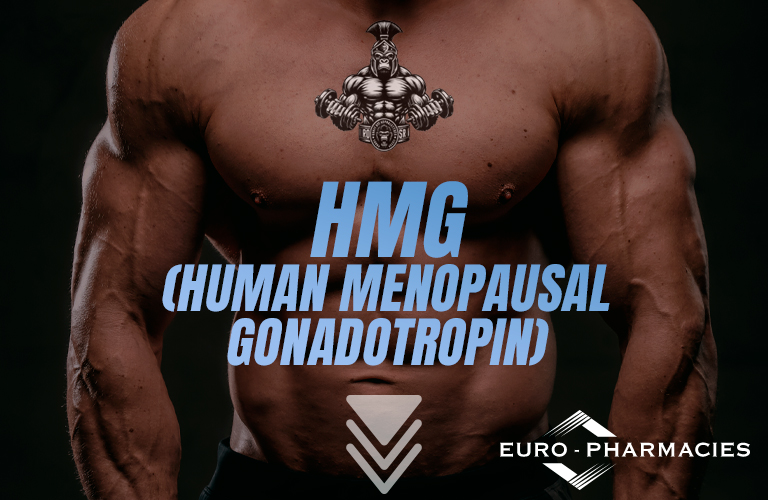
HMG (Human Menopausal Gonadotropin): A Comprehensive Profile
Human Menopausal Gonadotropin (HMG) is a fertility medication that contains a mixture of luteinizing hormone (LH) and follicle-stimulating hormone (FSH). It is used primarily in fertility treatments to stimulate the ovaries in women and the testes in men. HMG is particularly beneficial for men undergoing treatment for hypogonadism or infertility because it promotes the production of testosterone and sperm.
HMG (human menopausal gonadotropin) 75iu/vial

Understanding HMG
HMG is derived from the urine of postmenopausal women, which is a natural source of LH and FSH. These hormones play crucial roles in the body’s reproductive system. In men, LH stimulates the Leydig cells in the testes to produce testosterone, while FSH supports the production of sperm in the Sertoli cells. HMG is often used alongside HCG in fertility and testosterone-boosting protocols.
The Effects and Benefits of HMG
HMG offers several important benefits for men, particularly in addressing fertility and hormonal balance:
Sperm Production: HMG is one of the few treatments that can effectively stimulate spermatogenesis, or sperm production. This is crucial for men facing infertility due to low sperm counts or poor sperm quality.
Testosterone Production: HMG indirectly supports testosterone production by stimulating the testes through increased levels of LH, which helps to maintain proper testicular function.
Restoration of Normal Testicular Function: For bodybuilders or athletes recovering from anabolic steroid cycles, HMG can help restore natural testicular size and function when testosterone production has been suppressed.
Dosage and Administration
HMG is administered via subcutaneous or intramuscular injection, and dosage is typically tailored to the individual’s specific needs.
Typical Dosage: In men, HMG is often administered in doses of 75 IU, typically several times per week, in combination with hCG. This combination enhances the production of both testosterone and sperm. The treatment duration can vary based on the desired outcomes, but typical fertility treatments last several weeks to months.
Managing Side Effects
HMG is generally considered safe and effective when used properly, but some potential side effects include:
-Injection Site Reactions: As with any injectable medication, users may experience redness, swelling, or discomfort at the injection site. Proper technique can help minimize these issues.
-Hormonal Imbalances: While HMG helps restore normal reproductive hormone levels, improper use can lead to hormonal fluctuations, which may cause side effects such as mood changes, acne, or gynecomastia (breast tissue growth in men) if estrogen levels rise.
-Multiple Births: In women, HMG carries the risk of multiple births due to overstimulation of the ovaries. However, this side effect is not a concern in men using the hormone for fertility or testosterone production.
Conclusion
HMG is a critical medication for treating male infertility and testosterone suppression, particularly in men who have undergone anabolic steroid use or suffer from conditions like hypogonadism. Its ability to promote sperm production and support testosterone levels makes it a valuable tool in both medical and athletic contexts.
As with any hormonal therapy, responsible use and medical supervision a reessential to maximizing benefits while minimizing side effects.

